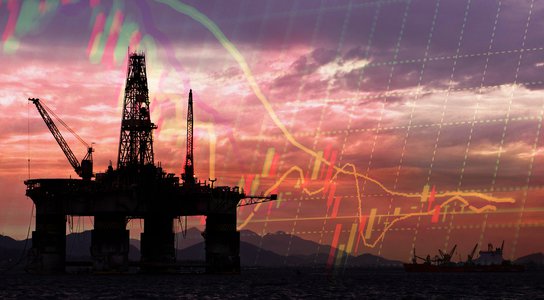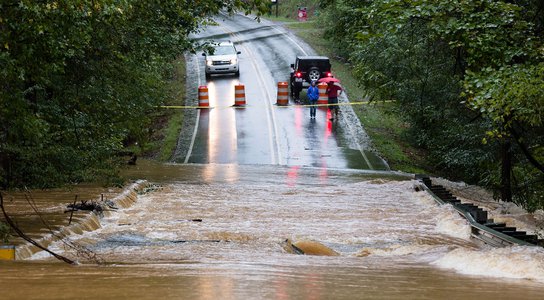The oil and gas industry is busy telling the world that we will need their fossil fuels for years to come, and that continuing to use oil and gas won’t wreck our chances of curbing climate change. So we took a look at the numbers – working with the latest climate science and industry forecasts – to see how much we could afford to burn while avoiding the worst impacts of climate change.
Our analysis found that all production from new oil and gas fields – beyond those already in production or development – is incompatible with reaching the world’s climate goals. Yet the oil and gas industry is set to spend $4.9 trillion (yes, trillion) over the next ten years on exploration and extraction in new fields. That’s an eye-watering amount of money to spend on fossil fuels we need to leave in the ground.
At the Paris UN climate talks in 2015, the world’s governments agreed to try to limit warming to 1.5°C above pre-industrial levels. They asked the world’s leading climate scientists – the Intergovernmental Panel on Climate Change (IPCC) - to report on what this would mean for the world, and what we’d need to do to get there.
The IPCC’s report was published late last year, and makes for shocking reading. The world has already warmed 1°C, so there’s only 0.5°C left to go before we reach 1.5°C. Even if we limit warming to 1.5°C, the impacts from climate change will be severe – there will be more droughts, more floods and the world’s major ice sheets could still melt. And if we miss that target, even limiting warming to just 2°C, the impacts are dramatically increased. It found there is still time to limit warming to 1.5°C, but only if significant action is taken immediately.
The IPCC looked at a range of ways that warming could be limited to 1.5°C. Many rely on capturing or removing huge amounts of CO2 from the atmosphere in the future. Some rely on capturing as much CO2 in the 21st Century as was emitted worldwide since the Industrial Revolution. The problem with that is that the technology to do this barely exists and is nowhere near on track to reach that scale. Even the IPCC itself said that relying on these technologies is a massive risk.
So if you don’t rely on these technologies saving us in the future, what does that mean for fossil fuels? Oil and gas production needs to start declining now, and declining fast.
Right now, the industry is forecast to pump more oil and gas for decades to come. Our analysis shows not only that production from new fields is incompatible with limiting warming to 1.5°C, but also that production from existing fields is already more than enough.
If this vast investment in new fields goes ahead, it will push us further and further towards the most dangerous and unpredictable impacts of warming: more wildfires, more droughts, more flooding, more hurricanes, more species loss. And while this would likely leave no one untouched, it is the world’s poorest people who would be hit hardest.
The good news (yes, there is a little bit of good news in all of this), is that the oil and gas companies are already feeling the pressure. Shell is set to tie some of its executive pay to reducing its emissions - though its targets are nowhere near good enough. BP will agree to disclose how its strategy and investments are aligned with the Paris agreement’s goals – which will be hard to do unless the company claims that emissions reductions can be achieved by (unproven and unreliable) carbon capture and removal. While these steps are nowhere near enough, they show that investors are already able to bring about change in these companies.
If we can escalate that pressure now, it’s still possible to stop these huge investments before they get started. Investors must ensure that oil and gas companies are on track to achieve the 1.5°C target, rather than heading for the disastrous impacts of burning fossil fuels like there’s no tomorrow.
Find out more – read our new report Overexposed.


